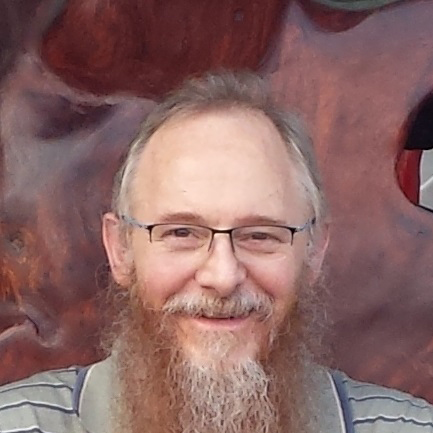Dr. Duncan Macquarrie, Reader at the University of York, U.K.
Green Chemistry at York, Microwaves, Catalysis and MaterialsThe Department of Chemistry Presents, via Online Zoom Presentation: Dr. Duncan Macquarrie, University of York, U.K.
The Green Chemistry Centre at York covers several areas of Green Chemistry including CO2 valorisation, clean synthesis, biomass-derived materials, microwave chemistry, and unavoidable food waste valorisation. There is an increasing drive to increase sustainability across the board, and the shift from fossil to renewable is a major theme within chemistry, as is the move from linear to circular economies.
This talk will give an overview of the GCCE's efforts in this area, but with focus on the use of microwaves, catalysis and the development and use of materials based on biomass residues for the development of more sustainable routes to chemical products and the recovery and reuse of key resources
Research
Within the Green Chemistry Centre of Excellence, there are 4 technology platforms. Dr. Macquarrie's role is to provide scientific leadership over all the platforms, and he is typically involved in 25-30 projects at any given time. Dr. Macquarrie successfully played a major part in leading several major projects (£1M - Carbon Trust and ERDF) on microwave pyrolysis, which led to the provision of a world leading facility for microwave pyrolysis, situated in the Biorenewables Development Centre; £10M Sunnlib (EU/Brazil project on valorisation of sugar cane residues; £6M Alterego EU FP7 project on alternative energy sources for chemical reactions and most recently a £9M EU Porous4APP project on the development and scale up of Starbon, a mesoporous carbonaceous material, leading to the spin out of a company, Starbon Ltd.
Aspects of his research into mesoporous carbonaceous materials and the broader focus on sustainability were featured in a BBC World Service Interview in February 2011, and recent papers on utilisation of biomass ash for catalyst manufacture, pyrolysis oils for antioxidancy, and production of levoglucosenone from waste lignin were featured in the RSC Press Pack, which generated coverage in Chemistry World, Biofuels, Bioprocessing and Bioresources and the University website.
Dr. Macquarrie was also involved in the EU EERA/EIBI committee on “Longer Term R&D needs and priorities on Bioenergy -Thinking beyond 2020” taking part in workshops and drafting recommendations of the group, which were published in 2014, and wrote the section on biomass pretreatment for the EU European Biorefinery Joint Strategic Research Roadmap for 2020, www.star-colibri.eu/publications.
His research covers three main areas: Microwave activation of biomass, Porous materials, and Clean Synthetic Chemistry, especially in the area of biomass-derived platform molecule chemistry.
In microwave chemistry he led a Carbon Trust funded project looking at microwave pyrolysis of biomass to produce liquid and solid fuels. This project led to the design and purchase of a 30kg/h microwave pyrolysis unit, and the continuation of research into pyrolysis oils as sources of chemicals and as adhesives and antioxidants for biofuels. He also contributed to the SUNLIBB project (FP7 / Brazil) looking at microwave hydrolysis of biomass to liberate fermentable sugars. He was WP leader on ALTEREGO, an EU FP7 project involving rigorous kinetic and mechanistic analysis of microwave-assisted chemical transformations, leading to a JACS publication. In Porous materials I developed the first route to mesoporous organosilicas and have applied these materials as catalysts and as chemical sensors. The have recently extended this work to utilise silica from waste materials including fly-ash and out-of-spec personal care products. For the last 10 years he has been heavily involved in the development of porous polysaccharides (initially focussing on starch), an area which now has commercialised, supplying Starbon ® via Sigma-Aldrich and Starbons Ltd, a spin-out. Dr. Macquarrie was WP leader on Porous4APP, an EU project aimed at providing viable multi kg / day batches of porous polysaccharide-derived catalysts and composite materials.
In the area of clean synthesis, Dr. Macquarrie has developed chemistry around the clean conversion of platform molecules such as acids to a range of products, with one process now used industrially.
Link to Dr. Duncan Macquarrie's Website
duncan [dot] macquarrie![]() york [dot] ac [dot] uk (duncan[dot]macquarrie[at]york[dot]ac[dot]uk)
york [dot] ac [dot] uk (duncan[dot]macquarrie[at]york[dot]ac[dot]uk)
This will be an Online Zoom Seminar.


